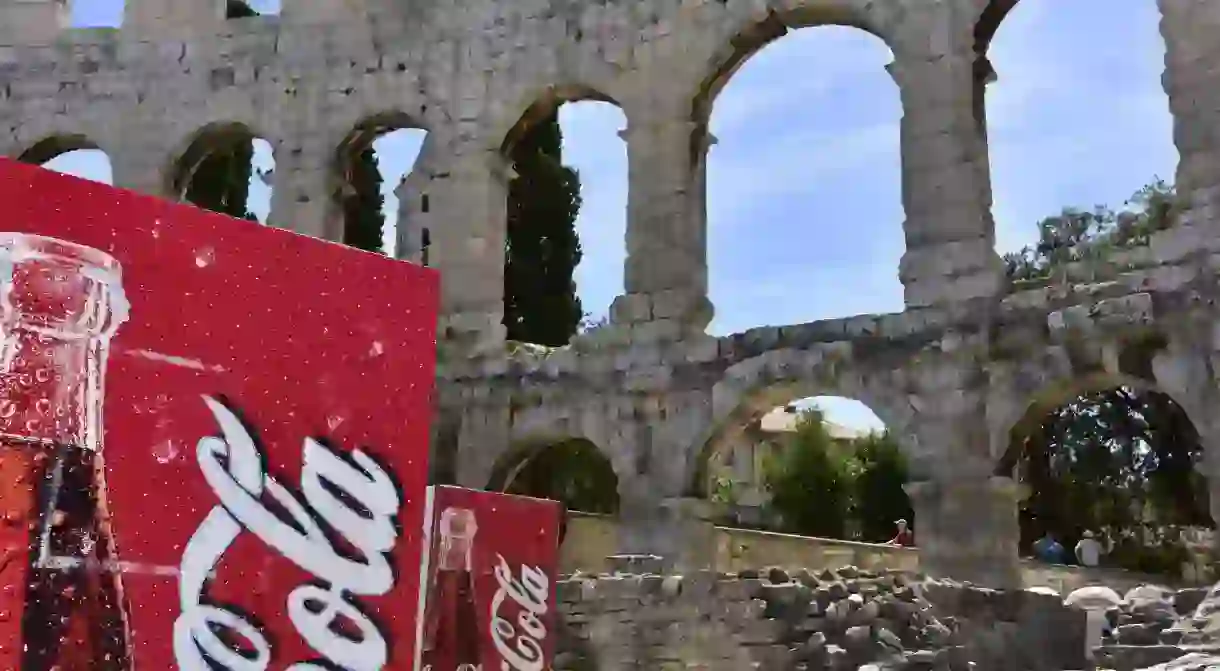11 Things Tourists Do In Croatia That Make Locals Angry

Croatia depends on tourism – but Croatians expect tourists to respect the country and culture they are visiting. There are many things visitors do abroad that they would never even contemplate doing at home. With Croatia now full to the brim with tourists during the summer, Croatians have already noticed a number of unsavoury behaviours from visitors. Here are 11 things tourists do in Croatia that earn the ire of locals (and therefore, things to avoid doing if you’re visiting).
Behave disrespectfully
Croatians are justifiably proud of their country, and so having groups of young foreigners come and desecrate historic monuments or even treat locals impolitely, whatever the reason, are no-no’s. Croatia may need the income tourism brings, but it doesn’t need the hassle. In any case, Croatians aren’t known for going to foreign countries and behaving badly – why should they suffer bad behaviour in theirs?

Not learn a few basic words
Although many Croatians speak English – and nearly all in service industries – you shouldn’t assume that everyone does then simply talk louder to people. It can’t be that hard to learn a few basic words and phrases such as hello, please and thank you.
Leave rubbish
Croatian beaches are pristine, lapped by crystal-clear waters. It’s not only environmentally friendly to keep them this way, this is also the one resource upon which the local economy depends. There’s nothing worse than seeing a plastic bag or cigarette carton bobbing around the shore where children are playing. Pick up the litter, deposit it in the nearest bin, or take it with you.
Use big notes
It’s a typical situation. A busy shop or stall, a tourist is buying a relatively modest item, perhaps a small bottle of water, and offers the vendor a 1,000-kuna note because they can’t be bothered to look for a couple of kuna coins in change. Many Croatian businesses are small, family-run ones, and so in high season small-denomination notes can run out pretty quickly. It’s pretty easy to work out the money here, even on the first day – make the effort and hand the vendor something at least close to the right amount.

Crowd out streets and alleyways
It’s an all too familiar scene in the summer: a group of travellers, with bulky rucksacks, are blocking a narrow street in some historic centre of town – Split, for example, or Dubrovnik, while someone decides which way the youth hostel might be or which pizzeria to go to. The city is pleased to have your custom but the road doesn’t belong to you – leave room for everyone else to pass by.
Eat on buses or trams
It’s done in London but frowned upon in Dubrovnik. Enjoy your takeaway slice of pizza or kebab by all means, but think of other passengers if you’re going to devour hot, smelly food on a city bus or tram; or even worse – on a long journey by bus between cities. Windows are not left open, not even in the summer, and few of these buses are equipped with air-conditioning.
Leave mean tips
Tipping in restaurants and in taxi cabs is common, tipping in bars not so – unless there are a few of you and service has been extra nice. But if you’re going to leave a tip, don’t round it up to the nearest kuna, that’s embarrassing. Do the math, add on a healthy 10%, or round up to the nearest note. If you’re in a restaurant and you’re adding the tip as part of credit-card payment, ask the waiter if they get this at the end of the day – if not, give the tip in cash.
Be loud and drunk
You’ll see many Croatians drinking. You won’t see many staggering around drunk. Loud and boorish behaviour, using streets as toilets, smashing bottles, communal late-night singing outside – all these are considered very poor form. Croatians generally rise early and many go to bed early – they have jobs to go to. Consider the locals and keep the student behaviour to bars at youth hostels.

Engage in political discussion
The history of this part of Europe is convoluted and painful. Here in Croatia, there was a terrible war not even 25 years ago. Therefore, it’s best not to engage in any kind of political discussion as your knowledge and appreciation of the situation will not be the same as anyone who lived through it. Avoid the topic, change the subject, move on.
Assume you pay in euros
It’s one thing to ask if it’s OK to pay in euros – it’s another to thrust out a 50 euro note without asking the protocol, then expect change back in euros. The currency here is the kuna, there are exchange offices and ATMs everywhere. Many businesses do accept euros – though not coins. Do the polite thing, ask first, pay with euros if you have to, and gratefully accept the change in kuna.
Treat churches as selfie locations
Croatia is a Catholic country and churches are sacred monuments. Just as you wouldn’t dream of going into a mosque or synagogue and act inappropriately, you shouldn’t treat the ornate interiors of churches as somewhere else to pose and take photos of yourself/ves. Churches are places of prayer and reflection – and, yes, places to observe and admire.














